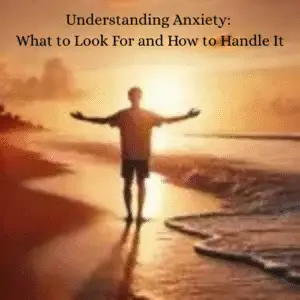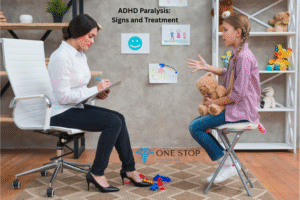Anxiety is something most of us experience at some point in life. Whether it’s feeling nervous before a big presentation or worrying about an upcoming event, anxiety is a normal part of being human. However, when anxiety starts to interfere with your daily life, it might be time to take a closer look. Anxiety disorders are among the most common mental health conditions in the U.S., but they are also very treatable. The first step is recognizing the signs and learning how to manage them.
What is Anxiety?
At its core, anxiety is the body’s natural response to stress. It’s a feeling of fear or apprehension about what’s to come. While occasional anxiety is completely normal, anxiety disorders involve more intense, prolonged feelings that can disrupt daily life. These feelings might arise even when there’s no immediate threat, and they can persist for weeks or months.
People with anxiety disorders often experience excessive worry, fear, or nervousness. It can manifest in physical symptoms, like a racing heart, difficulty breathing, or even headaches and stomachaches. Understanding the signs is crucial to identifying anxiety early and taking steps to manage it.
Common Signs of Anxiety
Anxiety doesn’t look the same for everyone, but there are some common signs to watch for:
- Constant Worrying: One of the hallmark signs of anxiety is persistent worry. If you’re feeling tense or on edge, even when there’s no immediate reason, it could be a sign of generalized anxiety disorder (GAD). This kind of worrying can make it hard to focus on anything else.
- Physical Symptoms: Anxiety often causes physical symptoms. You might notice your heart racing, shortness of breath, or even dizziness. Other symptoms include muscle tension, trembling, or sweating. These physical effects can make it feel like something is seriously wrong, which can increase anxiety further.
- Sleep Problems: Trouble falling asleep or staying asleep is a common issue for people with anxiety. Your mind might race with worries when you try to wind down, or you might wake up in the middle of the night and struggle to fall back asleep.
- Avoiding Certain Situations: If you find yourself avoiding social events, work, or other situations because of fear or nervousness, this can be a sign of social anxiety disorder or another anxiety-related condition.
- Irritability or Restlessness: Feeling easily annoyed or constantly on edge can be related to anxiety. You might find it hard to sit still or feel frustrated without a clear reason why.
Managing Anxiety: Simple Self-Care Tips
The good news is, there are many ways to manage anxiety, both on your own and with professional help. Here are some simple, practical self-care tips to help ease anxiety in your daily life:
- Practice Deep Breathing: When anxiety hits, your body often goes into “fight or flight” mode, making your breathing shallow and rapid. Practicing deep breathing exercises can help calm your nervous system. Try breathing in for four counts, holding for four, and exhaling for four. This can help regulate your heartbeat and bring a sense of calm.
- Get Moving: Exercise is one of the best natural anxiety relievers. Physical activity releases endorphins, which are chemicals in the brain that act as natural painkillers and mood elevators. Even a short walk or a few minutes of stretching can help reduce anxiety levels.
- Stay Present: Anxiety often comes from worrying about future events. Grounding techniques, such as mindfulness or meditation, can help you stay focused on the present moment. Try paying attention to your surroundings, how your body feels, or using the five senses (sight, sound, smell, taste, touch) to bring yourself back to the present.
- Limit Caffeine and Sugar: Caffeine can make anxiety worse by increasing your heart rate and making you feel more jittery. Similarly, sugar can cause highs and crashes in energy, which can impact your mood. Cutting back on these can help stabilize your body and mind.
- Talk to Someone: Reaching out to a friend, family member, or therapist can make a world of difference. Sometimes just talking about what’s on your mind can relieve some of the pressure. Therapy options like cognitive-behavioral therapy (CBT) are effective for managing anxiety and teaching coping mechanisms.
Seeking Professional Help
If anxiety feels overwhelming or persistent, it’s important to know that professional help is available. Therapy options, such as cognitive-behavioral therapy (CBT) and medication, have been proven to help individuals manage their anxiety. If you’re unsure where to start, talking to your doctor or a mental health professional is a good first step. You can also explore resources like the Anxiety and Depression Association of America (ADAA) or Mental Health America for more information and support.
Takeaway: Small Steps to Feel Better
Recognizing the signs of anxiety is the first step to taking control of your mental health. Whether it’s practicing breathing exercises, making lifestyle changes, or seeking therapy, there are many ways to manage anxiety effectively. Remember, you don’t have to live in constant worry or fear—help is available, and you can start feeling better one small step at a time.
start your journey to recovery today with One Stop Psychiatry Call For Free Consultation – (754) 270-6322




